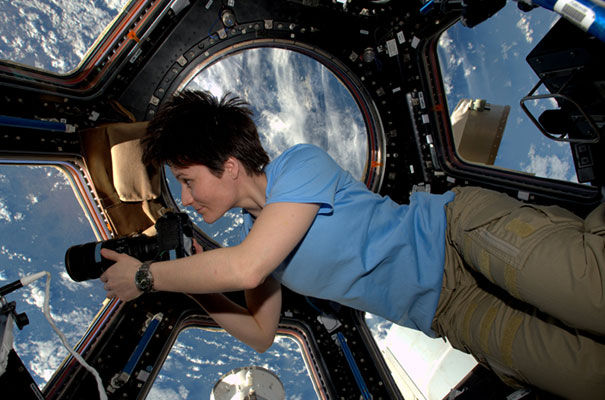Two freshly engineered Raspberry Pi Computers are heading to the International Space Station (ISS) as novel Cambridge technology shoots for the stars.
Raspberry Pi, which is steering micro-computer advances to help the UK develop a global coding lead, joined forces with Ely precision engineering company Shearline and the European Space Agency for the new programme.
The European Astro Pi Challenge gives young people the chance to run their computer programs in space.
The first Astro Pi units were taken up to the ISS by British ESA astronaut Tim Peake in December 2015 as part of his mission Principia. Since then 54,000 young people from 26 countries have written code that has run on these specially augmented Raspberry Pi computers.
The new hardware makes it possible for teams of young people aged 19 and under to design new types of experiments. With the Raspberry Pi High Quality Camera they can take sharper, more detailed images, and, for the first time, teams will be able to get full colour images of the beauty of Earth from space. This will also enable teams to investigate plant health with the higher quality optical filter used in conjunction with the IR-sensitive camera.
The Astro Pi units, in their space-ready cases of machined aluminium, will travel to the ISS in December on the Space-X Dragon Cargo rocket, launching from Kennedy Space Centre.
Once the resupply rocket docks with the ISS, they’ll be unpacked and wait to be set up ready for use in 2022.
Olympia Brown, head of Youth Partnership at Raspberry Pi, says: “Getting them ready for launch has been a significant effort from lots of people. Once we and our friends at ESA had agreed on the new features and hardware, we commissioned the design of the new case from Jon Wells.”
Once the case and hardware was ready, the team were ready to take on the huge battery of tests that are required before any equipment can be used on the ISS.
These included the vibration test, to ensure that the Astro Pi units would survive the rigours of the launch; thermal testing to make sure that units don’t get too hot to touch; and stringent, military grade electromagnetic emissions and susceptibility tests that are there to guarantee that the Astro Pi computers won’t interfere with any ISS systems, and will not themselves be affected by other equipment that is onboard.
Shearline Precision Engineering manufactured the cases for the new Astro Pi Flight Units from space-grade aluminium using a state of the art 5 axis CNC machining process, as well as anodisation of the cases to increase corrosion resistance and a Surtec finish to increase conductivity.
The Raspberry Pi Foundation and the European Space Agency encourage young people all over Cambridgeshire and beyond to get involved. There are two challenges for Astro Pi: Mission Zero and Mission Space Lab.
Young people can participate in one or both. In Mission Zero, young people write a simple python program that takes a sensor reading and displays a message on the LED screen. Mission Space Lab is for teams of young people who want to run their own scientific experiment on the Astro Pi units aboard the ISS.
Olympia Brown added: “We can’t wait to see what experiments people come up with. It’s a completely unique and unforgettable experience, and you don’t need any coding experience to get involved. Best of all, it’s absolutely free to take part in.”
The Raspberry Pi Foundation is a registered UK charity that works to put the power of computing and digital making into the hands of people all over the world.
It engages millions of young people in learning computing and digital making skills through a thriving network of clubs and events, and through partnerships with youth organisations. It enables any school to offer students the opportunity to study computing and computer science through providing the best possible curriculum, resources, and training for teachers.
• Head to astro-pi.org to get involved in The European Astro Pi Challenge.

